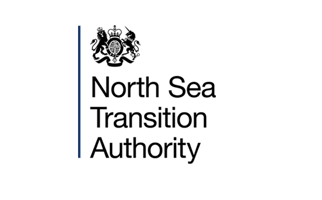
- Industry told to avoid lengthy delays that can harm business
- Message follows investigation into Elgin Franklin deal
The North Sea Transition Authority (NSTA) has reminded licensees of the obligation to collaborate effectively and ensure transactions are completed promptly, to support investment in the UK Continental Shelf (UKCS).
Following an NSTA investigation into Esso’s sale to NEO of interests in 13 producing fields – including the Elgin Franklin fields, operated by TotalEnergies – the Regulator has set out where improvements can be made when licensees collaborate.
Collaboration is an obligation in the OGA Strategy and failure to comply with The Strategy is sanctionable under the Energy Act 2016. The transaction has now successfully completed and no further action will be taken by the NSTA, following the investigation.
The NSTA launched the investigation amid concerns that negotiations were progressing too slowly and the possible chilling effect this could have on investment. The investigation focused on collaboration between vendor, purchaser and operator.
In closing the investigation, the NSTA observed that the parties did collaborate, however, at times communication was lacking, roles should have been more clearly defined at the outset and not all negotiators had authority to negotiate “in the room”. These shortcomings may have delayed the transaction.
Industry-developed guidance, which includes the Commercial Code of Practice 2016 and Negotiations Best Practice, March 2017, emphasises the significance of:
- defining a realistic timetable to completion at the outset
- transparency of communication with joint venture partners
- authorising lead negotiators to negotiate “in the room”
- avoiding demands for open-ended spending commitments and unlimited guarantees
This industry-developed guidance provides a strong framework, which industry is expected to follow. Where there is evidence of repeated examples of poor behaviour, or a failure to collaborate, the NSTA will not hesitate to use its sanction powers.
NSTA Director of Regulation, Tom Wheeler, said:
“Billions of pounds in new investment will be needed if the North Sea is to play its vital role in the energy transition. This case, which is by no means unique, highlights the importance of industry following its own practice guidelines, to avoid putting off new investors.
“We recognise that there is a balance to be struck between this and the need for licensees to manage counterparty risks. The NSTA is carefully examining this issue and intends to consult on this and other related matters in the coming months.”
Notes to editors:
- Esso was divesting a portfolio of assets to NEO. The Esso press announcement, which was published under the name of ExxonMobil, reads: “The agreement includes ownership interests in 14 producing fields operated primarily by Shell, including Penguins, Starling, Fram, the Gannet Cluster and Shearwater; Elgin Franklin fields operated by Total; and interests in the associated infrastructure. ExxonMobil’s share of production from these fields was approximately 38,000 oil-equivalent barrels per day in 2019.” (One of the 14 fields was subsequently removed from the package.)
- The investigation was conducted under the NSTA’s Sanction Procedure (see press release dated 26 October 2021)
- The NSTA has the duty to regulate the industry and has communicated to industry the strategic significance the NSTA places on regulatory compliance to support industry’s “social licence to operate”.
- Follow us on Twitter at @NSTAuthority
For further information please contact:
Tel: 07785 655620


